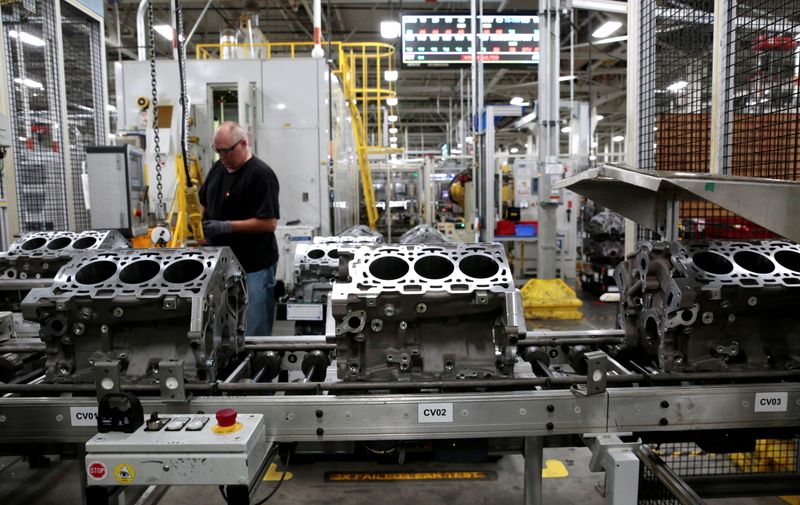(Reuters) - Semiconductor shortages and the delayed packaging and testing of the chips will cause production of global light vehicles to drop by five million this year, data firm IHS Markit said on Thursday, marking the biggest cut to its outlook in nine months.
Citing supply chain challenges, IHS said it was cutting its light vehicle production forecast by 6.2% for 2021 and 9.3% for 2022, to stand at 75.8 million units and 82.6 million units, respectively.
Packaging (NYSE:PKG) and testing operations within the semiconductor sector in Malaysia were impacted due to the government's lockdown measures in early June, IHS said, compounding difficulties in an already constrained supply chain.
"Our interpretation of the situation in Malaysia, which is responsible for 13% of the global supply of semiconductors for the automotive industry, has become more pessimistic," IHS said.
"The two-and-a-half-month backlog that has built up since June will take time to clear and is anticipated to extend well into 2022."
Automakers from General Motors (NYSE:GM) to Japan's Toyota have slashed output and sales forecasts due to scarce chip supplies, made worse by a COVID-19 resurgence in key Asian semiconductor production hubs.
IHS said the semiconductor snafus have resulted in lost production of 1.44 million units in the first quarter and a further 2.6 million units in the second quarter.

Currently, losses in the quarter are running at 3.1 million units and rising, nearly double its previous forecast.
"The outlook for Q4 now reflects heightened risk as challenges to the supply chain – primarily semiconductors – remain entrenched."